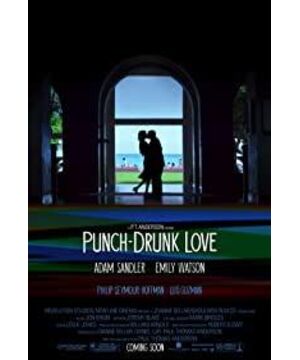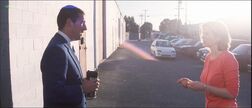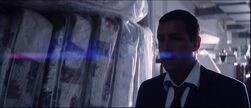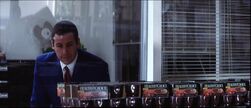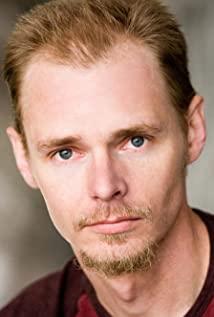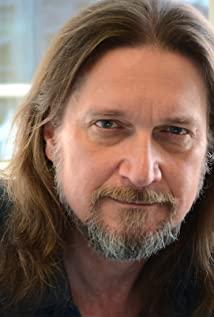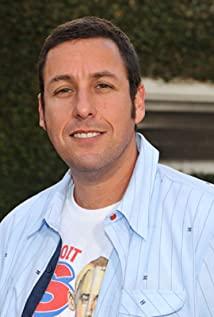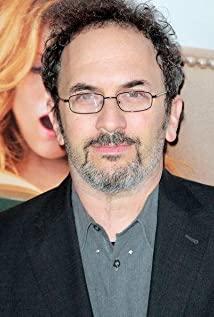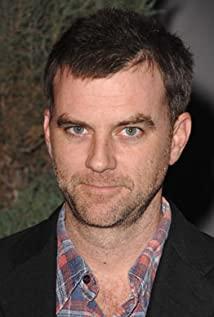Let me talk about this little crested first. Needless to elaborate on the composition of the phone call at the beginning, all film reviews have explained it.
Barry walked out of the warehouse, moved the lens to follow him, focusing on him, and then quickly zoomed, the rebound after the depth of field was compressed, creating the illusion of a slight distortion of the picture. After that, the camera flew directly out of the gate, slowly shifted the lens, stopped, waiting for the side of the road like a ghost, a car overturned while driving. Switch back to Barry's reaction shots, then cut back to the loop side shots. This is a very non-standard front and back shot, or a lens that switches from the viewpoint, because the physical distance between the two objets is not credible. Precisely because of such a non-standard front and back fight (or raccord regard) brings the ghost perspective of the narrator.
Then came the scene of calling again, the time changed, it was noon at this time. Almost the same lens and composition, Barry walked out of the factory, a car came in (lena), this composition is almost the same as in Figure 2. It is worth noting that the wind was very strong at noon, and we saw the camera shake with the wind.
Those who are familiar with Scorsese, Parma or PTA will not be too surprised. Physically speaking, it is impossible for a camera to be blown by the wind, but what the camera is blown by the wind is the materialization of the wind, which is a kind of expressionism, similar to Munch's cry.
So what is the identity of the narrator of the camera? The PTA camera is like a ghost, lurking around the characters, feeling their feelings, seeing what they want to see.
How to express Barry's hesitation about whether to pick up the small piano? The coaxial cuts in Figure 3 and Figure 4 create a sense of hesitation. (If you change to a genre film director, you may not choose such a loose scene, they must be keen to show the details on the character's face), but Barry is always surrounded by the environment. In this crested head, the environment is bigger than Barry.
Immediately after a big car drove by, Barry picked up the small piano as if to escape for his life.
In this segment, the four axes are all positioned, and the sceneries are loose. It is worth noting that before this clip, it is a close-up shot of Barry's chest hiding behind the factory wall.
Barry poked his head a little behind the wall, which was his fortress. Then Barry was exposed to the whole environment (this is the composition of this group of four axis cameras). This section creates a sense of danger that removes the fortress next to the character.
Barry is holding the piano and running indoors (a place he thinks is safe). This scene is also very interesting. In the foreground is Lena's car, and in the background is a large truck roaring by and the dust raised during driving. Barry was threatened by both sides at the same time.
Figure 5-9
This paragraph is simply wonderful. After Barry ran into the office, the scene gradually tightened. He began to play the piano, slowly shifting his back, and the whole scene was safe and quiet. Until the worker opens the door.
Picture 5 is also a small push mirror. What's interesting here is that Barry's face slowly lit up from the dark as the camera slowly moved forward, and he felt a little safer.
Then, a super fast montage of about one and a half seconds (Figure 6) shocked Barry. It's not a strange thing to be surprised. The key is how can we (the audience) feel the "shock" of the characters by the lens alone without taking the hard performance of the actors into consideration?
This group is very exciting whether it is the camera position or the editing. Just a surprise (a total of 5 seconds of story time) used five completely different axis editing, one per second.
The atmosphere of "shocked" immediately came out.
This is the difference between movies and TV shows.
to be continued.
View more about Punch-Drunk Love reviews


